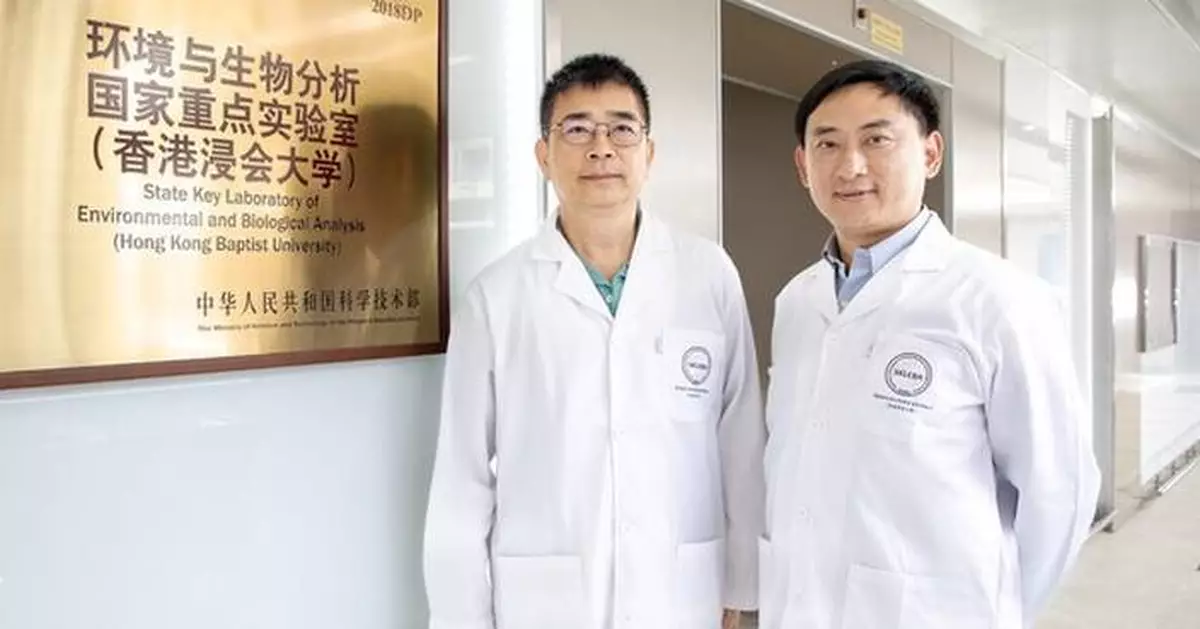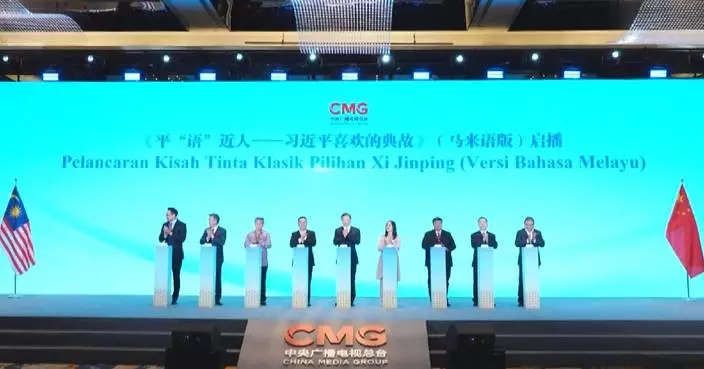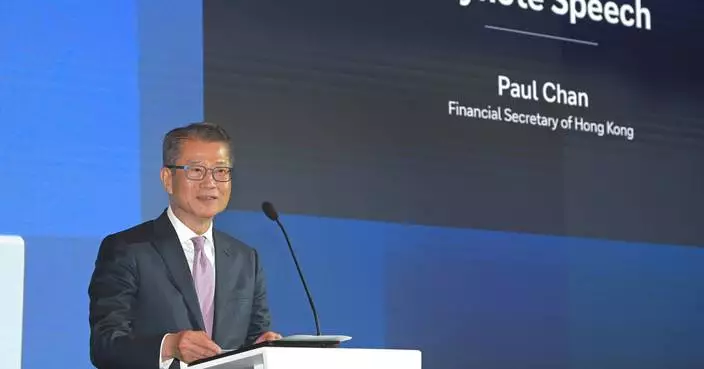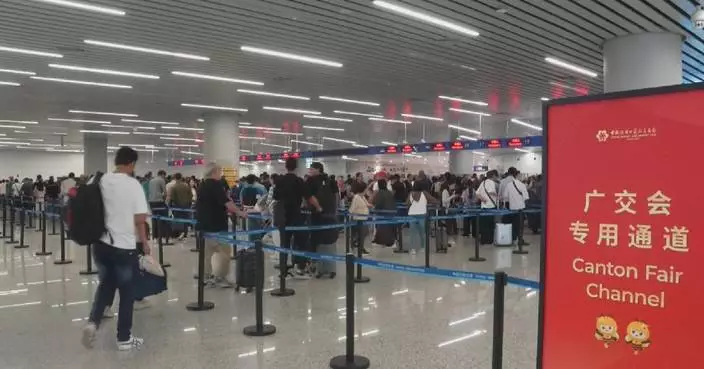HONG KONG, Aug. 27, 2024 /PRNewswire/ -- A research team led by Hong Kong Baptist University (HKBU) has discovered that phosphocholine, an important component in the body's metabolism, could counteract the adverse effects of PM2.5 toxicity on lung cells. This discovery highlights the therapeutic potential of phosphocholine in treating lung diseases associated with PM2.5 such as asthma, chronic obstructive pulmonary disease and lung cancer, and contributes to developing health measures against air pollution.
The research findings have been published in the international academic journal Proceedings of the National Academy of Sciences.
PM2.5 increases health risks
The World Health Organisation has linked air pollution to an estimated seven million deaths annually, and recognising it as the leading environmental risk factor globally. PM2.5, a major air pollutant, increases the risk of health problems such as heart and lung diseases. Every type of PM2.5 component possesses distinct impacts on human health. However, the understanding of the toxicity effects of individual PM2.5 components remains limited, and the respective preventive solutions for PM2.5-associated health problems are lacking.
To understand the effects of different PM2.5 components on the underlying cell metabolism associated with lung diseases, a team led by Professor Cai Zongwei, Chair Professor of the Department of Chemistry and Director of the State Key Laboratory of Environmental and Biological Analysis, and Dr Yang Zhu, Assistant Professor of the Department of Biology at HKBU, analysed a total of 82 components in PM2.5 samples collected from Taiyuan in Shanxi Province and Guangzhou in Guangdong Province between 2017 and 2018.
It was found that the overall PM2.5 profiles were similar in both cities. Inorganic ions are the most abundant pollutants, followed by metals and organic compounds polycyclic aromatic hydrocarbons (PAHs). However, a large difference was observed in the relative proportions of PAHs and their derivatives.
PM2.5 composition contributes to toxicity
The research team discovered that the proportion of PAHs was significantly higher in Taiyuan, especially during the heating season. Since the abundance of PAHs is closely associated with coal combustion, the result suggested that coal combustion was one of the major sources of PM2.5 in the city. Conversely, the seasonal variance of PAHs in Guangzhou was significantly lower. Traffic emissions were the predominant PM2.5 in Guangzhou.
Given the disparity in pollutant composition, the research team conducted toxicity and health risk analysis of PM2.5 samples from both cities. A cytotoxicity test revealed that the PM2.5 from winter Taiyuan exhibited much stronger toxicity than the samples from Guangzhou or from other seasons of Taiyuan with the same PM2.5 concentration, as indicated by cell viability which measures the proportion of healthy living cells. Assessment using the incremental lifetime cancer risk model, which estimates increased cancer risk from carcinogen exposure, highlighted that the regional difference in cancer risks linked to PAHs and its derivatives nitro-PAHs' concentration was much higher than the variation in overall PM2.5 concentration. These findings underscore that PM2.5 toxicity cannot be solely attributed to its concentration but also to its composition.
Phosphocholine counteracts PM2.5 toxicity
The research team further employed correlation analysis to examine the impact of specific PM2.5 components on metabolic alterations in lung cells, and identified 11 metabolites that showed a significant correlation with PM2.5 components. Among these metabolites, the researchers focused on the functions of eight ones whose amount reduced significantly after PM2.5 exposure. Subsequent experiments demonstrated that only supplementing phosphocholine to PM2.5-exposed cells was effective in both rescuing cell viability and stimulating adenosine triphosphate (ATP) production. ATP is a critical molecule for energy storage, which provides the energy needed for a wide range of cellular processes within living cells.
Under normal circumstances, lung cells primarily rely on glucose for energy production. However, PM2.5 conditions might impair energy supply from glucose. Fatty acid oxidation is a process in cells that breaks down fatty acids to generate energy. Under normal conditions, the utilisation of fatty acid oxidation pathway contributes minimally to energy production in lung cells. It was found that phosphocholine can reprogramme cellular metabolism to increase fatty acid oxidation to meet the shortfall in energy supply during the PM2.5 challenge, which helps to alleviate cellular dysfunction induced by PM2.5.
Professor Cai said: "Our findings highlighted the potential of phosphocholine as a therapeutic agent for lung diseases associated with PM2.5. As air pollution caused by PM2.5 has been recognised as a significant global health risk factor, our discovery provides the prospect of developing novel treatments for related health issues, potentially helping to address this public health challenge."
In future, the research may also contribute to the development of diagnosis protocol for lung diseases caused by PM2.5 apart from its potential as a therapeutic agent.
** The press release content is from PR Newswire. Bastille Post is not involved in its creation. **
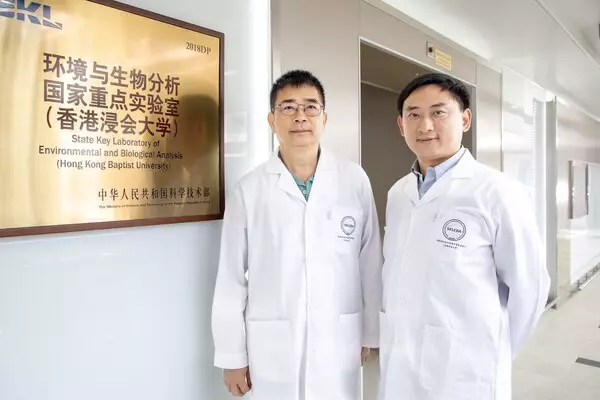
HKBU research identifies potential of phosphocholine in counteracting PM2.5 toxicity in lung diseases
ABU DHABI, UAE, April 17, 2025 /PRNewswire/ -- Leading Abu Dhabi-based global entities ADQ, IHC and Modon Holding have entered into a joint venture to form a dedicated infrastructure platform that will actively drive infrastructure development for private and public-private partnerships. Operating under Modon Holding, Gridora will serve as a strategic platform for collaboration with specialist partners and capital providers, enabling the delivery of large-scale, high-impact infrastructure projects.
Leveraging Modon Holding's national, regional and international infrastructure and real estate development expertise, the new entity will accelerate the delivery of major projects across the UAE and globally. It will enhance capacity for deployment, streamlining the procurement and implementation of key infrastructure contracts.
Gridora will be structured around two complementary business lines, Infrastructure Projects and Infrastructure Investments, which reflect the project origination and asset management capabilities of its founding partners. This dual-focus model is designed to generate returns, while addressing the transformative shift required to scale infrastructure implementation nationally, regionally and internationally.
By assuming a leadership role in critical delivery processes, Gridora will create value throughout the infrastructure lifecycle – from early-stage planning through to operations – unlocking new opportunities for both fee-based revenues and long-term investment yields. With the combined strength of its three founding partners, Gridora is strategically positioned to foster long-term collaboration between the public and private sectors.
Commenting on the partnership, His Excellency Jassem Mohamed Bu Ataba Al Zaabi, Chairman of Modon Holding, said: "Abu Dhabi's thriving economy and growing population demand world-class infrastructure. By leveraging the collective expertise and resources of ADQ, IHC and Modon Holding, Gridora will become a local, regional, and international champion for infrastructure development and drive a step change in delivering strategic projects."
His Excellency Mohamed Hassan Alsuwaidi, Managing Director and Group Chief Executive Officer of ADQ, said: "As a long-term investor with deep exposure across infrastructure investments, the establishment of Gridora exemplifies our commitment to design and enable transformative development for projects of strategic importance. Our partnership with world class institutions, such as Modon and IHC, aims to unlock further value through this platform, and it is a reflection of our growing confidence to drive innovation and efficiency built for long term impact for the emirate and beyond."
Syed Basar Shueb, Chief Executive Officer of IHC, added: "Gridora reflects IHC's continued focus on building future-ready platforms that combine innovation, scale, and strategic collaboration. As a long-term investor, we see strong potential in harnessing infrastructure investments to unlock new economic value, deepen private sector participation, and drive infrastructure-led growth across markets. With Modon as part of the IHC Group, this joint venture reinforces our strategy of empowering our dynamic value networks to lead in sectors that are vital to national and regional development."
Bill O'Regan, Group Chief Executive Officer of Modon Holding, said: "The joint venture reinforces Modon's mission to create smart cities defined by intelligent and connected living. It provides a targeted solution to meet infrastructure requirements, significantly accelerating the delivery of critical projects while broadening the field of specialist private sector delivery partners. Gridora will harness Modon Holding's pioneering capabilities to channel expertise and capital into key projects and builds on Abu Dhabi's proven framework for development of transformative infrastructure. Alongside expediting the delivery of state-of-the-art infrastructure, it will also open new revenue streams and attractive long-term opportunities for Modon Holding and our partners.".
About ADQ:
Established in 2018, ADQ is an active sovereign investor with a focus on critical infrastructure and global supply chains. As a strategic partner to the Government of Abu Dhabi, ADQ invests in the growth of business platforms anchored in the Emirate that deliver value to local communities and long-term financial returns to its shareholder. ADQ's total assets amounted to USD 225 billion as of 30 June 2024. Its rapidly expanding portfolio encompasses companies across numerous core sectors of the economy, including energy and utilities, transport and logistics, food and agriculture, and healthcare and life sciences.
For more information, visit adq.ae or write to media@adq.ae.
You can also follow ADQ on Instagram, LinkedIn and X.
About IHC:
Established in 1999, IHC has become the most valuable holding company in the Middle East and one of world's largest investment firms, with a market capitalization of AED 876.5 billion (USD 238.5 billion). Since then, it has transformed to represent a new generation of investors. IHC's commitment to sustainability, innovation, and economic diversification spans over 1,200 subsidiaries, driving growth across industries like Asset Management, Healthcare, Real Estate, Financial Services, IT, and more.
IHC continually looks beyond the stand-alone value of its assets for opportunities, stepping outside of traditional approaches and artificial barriers to unlock opportunities across its portfolio, enabling sector-agnostic Dynamic Value Networks and creating results that are often much greater than the sum of their parts.
At IHC, we take our responsibility to shareholders, customers, and employees seriously. Our commitment to responsible investment ensures that we create sustainable value by staying connected to the communities we serve, making a positive difference with every investment.
www.ihcuae.com
About Modon:
Modon is an international holding company, headquartered in Abu Dhabi, United Arab Emirates, and listed on the Abu Dhabi Securities Exchange (ADX). We are at the forefront of urban innovation, creating iconic designs and experiences that continually surpass expectations. Our primary business sectors include real estate, hospitality, asset management, investments, events, and tourism. Our goal is to deliver long-term, sustainable value, laying the foundations for intelligent, connected living.
For further information, please contact:
press@modon.com
ir@modon.com
www.modon.com
** The press release content is from PR Newswire. Bastille Post is not involved in its creation. **
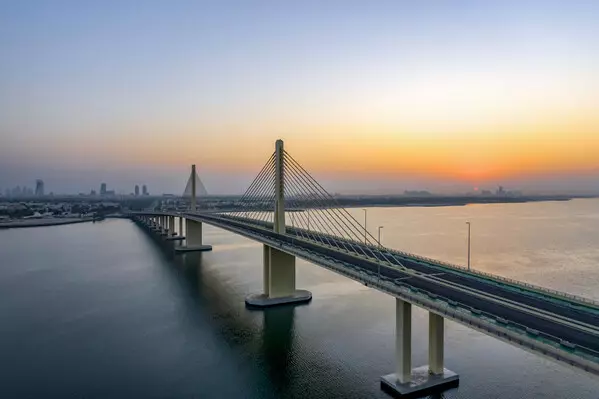
ADQ, IHC and Modon form new infrastructure platform 'Gridora' to accelerate the development of strategic projects



